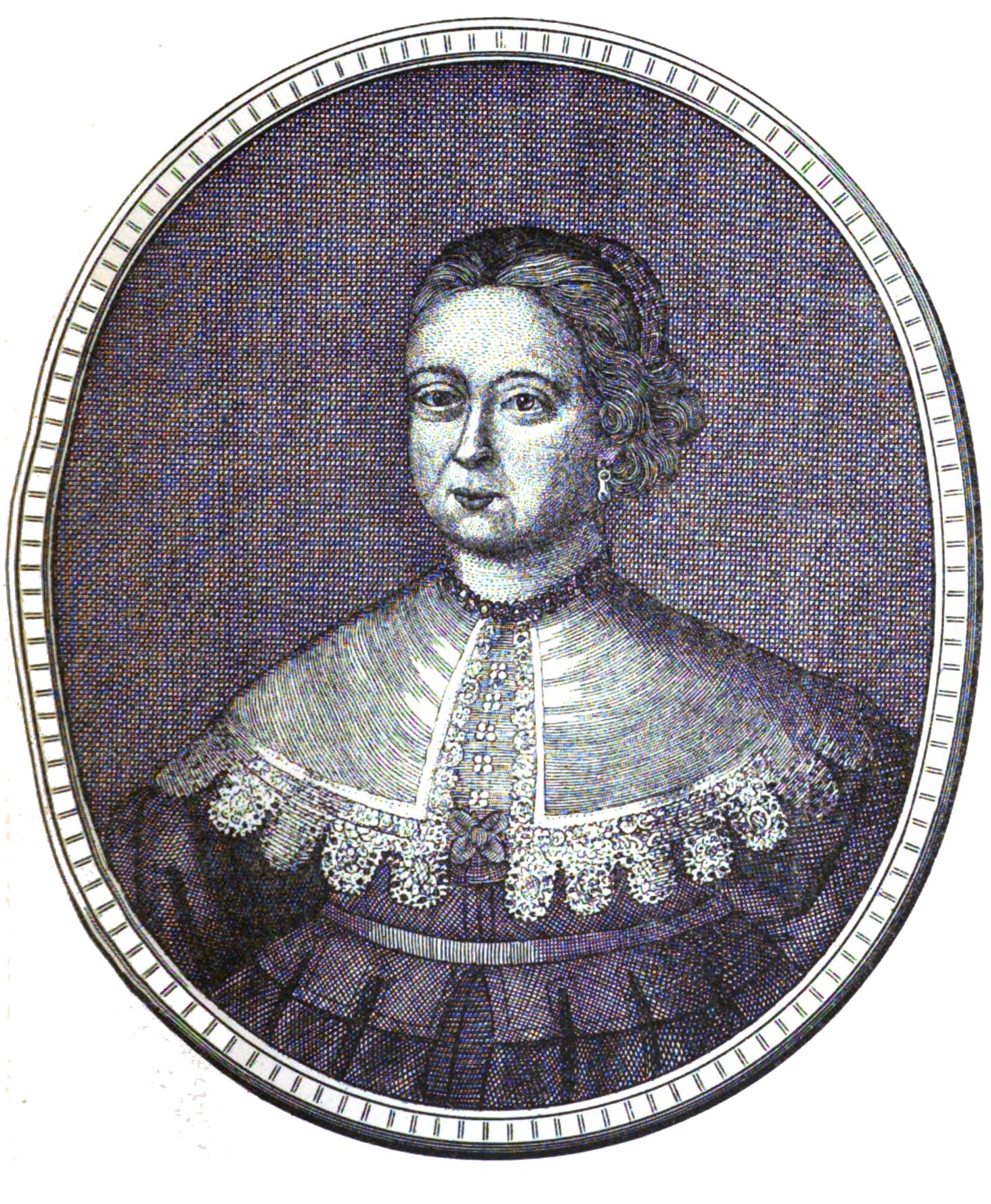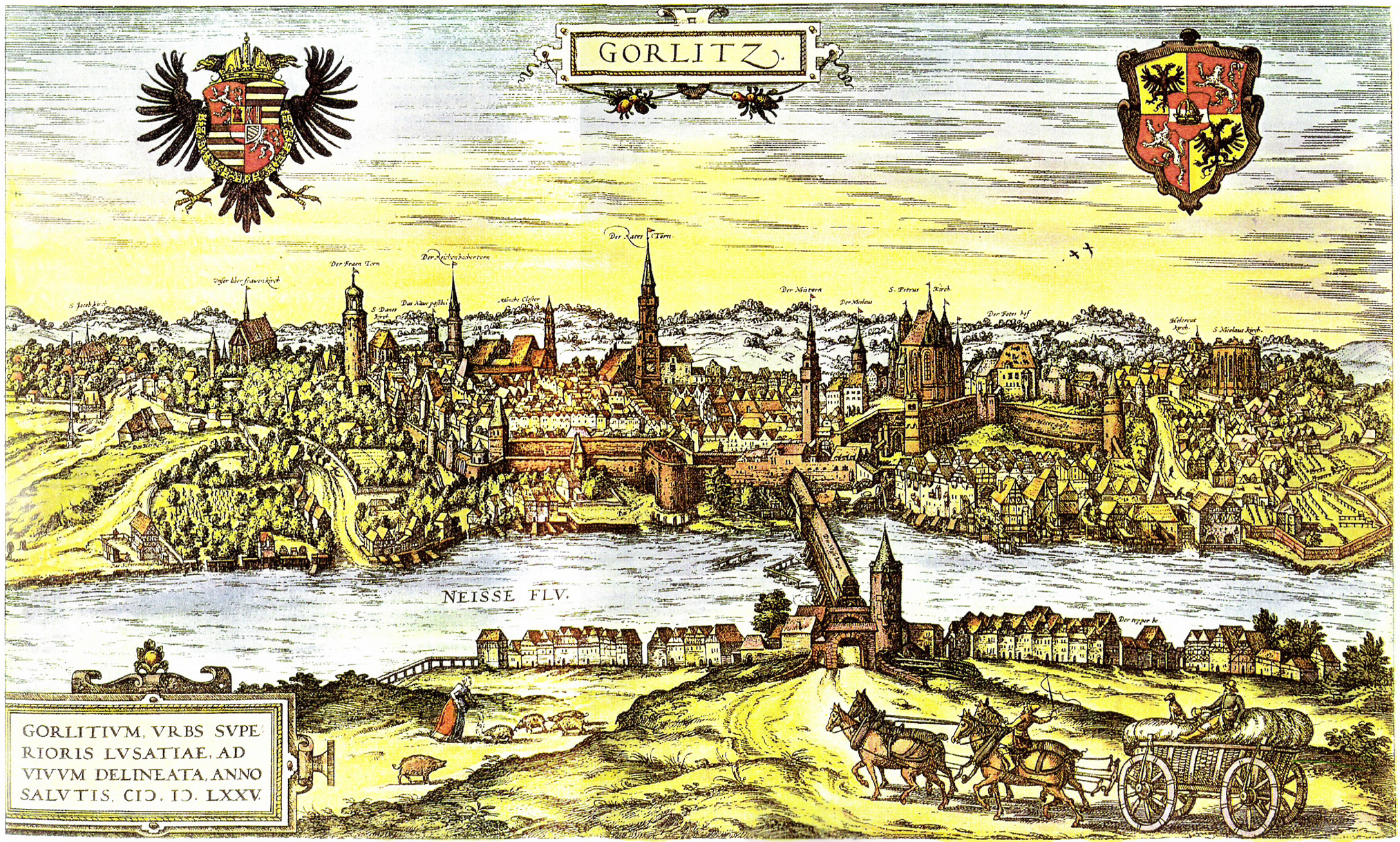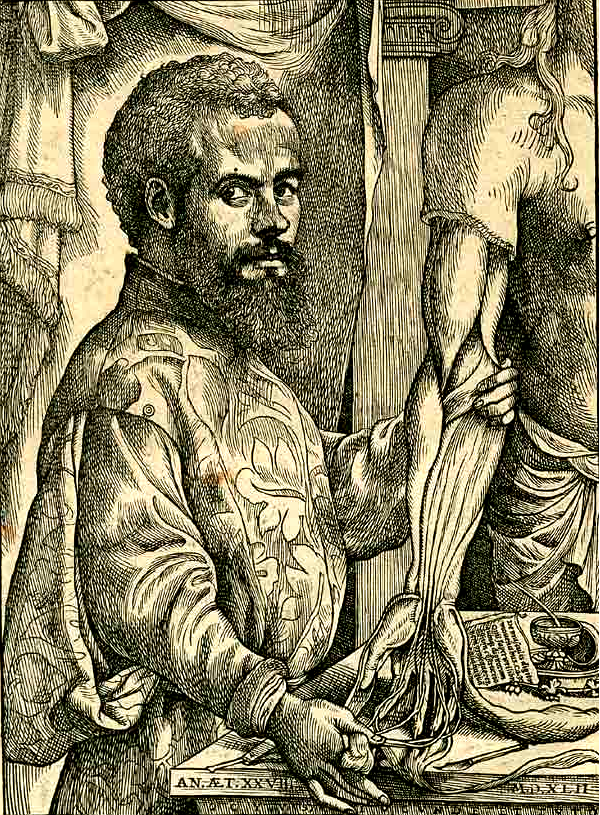|
Agnes Fingerin
Agnes Finger or ''Agnes Fingerin'' (d. 1514), was a German businessperson.Katrin Schreyer: Das Leben der Agnes Fingerin im Spiegel der zeitgenössischen Quellen. In: Görlitzer Magazin. Band 18, 2005, S. 74–85 She married a tailor in Görlitz, and became a childless widow after a short marriage in 1465. She took over the business of her late spouse and managed it for almost fifty years, never remarrying. She was rich and successful, and founded the charity foundation ''Fromme Stiftung von Brot und Salz'' in 1471, which distributed bread for the poor, ''Agnetenbrot'', until 1563. She famously made a pilgrimage to Jerusalem in 1476. References 1514 deaths 16th-century German businesswomen 15th-century births 15th-century German businesspeople People from Görlitz {{Germany-business-bio-stub ... [...More Info...] [...Related Items...] OR: [Wikipedia] [Google] [Baidu] |
Agnes Fingerin
Agnes Finger or ''Agnes Fingerin'' (d. 1514), was a German businessperson.Katrin Schreyer: Das Leben der Agnes Fingerin im Spiegel der zeitgenössischen Quellen. In: Görlitzer Magazin. Band 18, 2005, S. 74–85 She married a tailor in Görlitz, and became a childless widow after a short marriage in 1465. She took over the business of her late spouse and managed it for almost fifty years, never remarrying. She was rich and successful, and founded the charity foundation ''Fromme Stiftung von Brot und Salz'' in 1471, which distributed bread for the poor, ''Agnetenbrot'', until 1563. She famously made a pilgrimage to Jerusalem in 1476. References 1514 deaths 16th-century German businesswomen 15th-century births 15th-century German businesspeople People from Görlitz {{Germany-business-bio-stub ... [...More Info...] [...Related Items...] OR: [Wikipedia] [Google] [Baidu] |
Tailor
A tailor is a person who makes or alters clothing, particularly in men's clothing. The Oxford English Dictionary dates the term to the thirteenth century. History Although clothing construction goes back to prehistory, there is evidence of tailor shops in Ancient Greece and Rome, as well as tailoring tools such as irons and shears. The profession of tailor in Europe became formalized in the High Middle Ages through the establishment of guilds. Tailors' guilds instituted a system of masters, journeymen, and apprentices. Guild members established rules to limit competition and establish quality standards. In 1244, members of the tailor's guild in Bologna established statutes to govern their profession and required anyone working as a tailor to join the guild. In England, the Statute of Artificers, passed in 1563, included the profession of tailor as one of the trades that could be entered only by serving a term of apprenticeship, typically seven years. A typical tailor shop ... [...More Info...] [...Related Items...] OR: [Wikipedia] [Google] [Baidu] |
Görlitz
Görlitz (; pl, Zgorzelec, hsb, Zhorjelc, cz, Zhořelec, :de:Ostlausitzer Mundart, East Lusatian dialect: ''Gerlz'', ''Gerltz'', ''Gerltsch'') is a town in the Germany, German state of Saxony. It is located on the Lusatian Neisse River, and is the largest town in Upper Lusatia as well as the second-largest town in the region of Lusatia, after Cottbus. Görlitz is the easternmost town in Germany (easternmost village is Zentendorf, Zentendorf (Šćeńc)), and lies opposite the Poland, Polish town of Zgorzelec, which was the eastern part of Görlitz until 1945. The town has approximately 56,000 inhabitants, which make Görlitz the List of cities in Saxony by population, sixth-largest town in Saxony. It is the seat of the Görlitz (district), district of Görlitz. Together with Zgorzelec, it forms the Euro City of Görlitz/Zgorzelec, which has a combined population of around 86,000. While not Sorbian languages, Lusatiophone itself, the town is situated just east of the Sorbian la ... [...More Info...] [...Related Items...] OR: [Wikipedia] [Google] [Baidu] |
Pilgrimage
A pilgrimage is a journey, often into an unknown or foreign place, where a person goes in search of new or expanded meaning about their self, others, nature, or a higher good, through the experience. It can lead to a personal transformation, after which the pilgrim returns to their daily life. Background Pilgrimages frequently involve a journey or search of moral or spiritual significance. Typically, it is a journey to a shrine or other location of importance to a person's beliefs and faith, although sometimes it can be a metaphorical journey into someone's own beliefs. Many religions attach spiritual importance to particular places: the place of birth or death of founders or saints, or to the place of their "calling" or spiritual awakening, or of their connection (visual or verbal) with the divine, to locations where miracles were performed or witnessed, or locations where a deity is said to live or be "housed", or any site that is seen to have special spiritual powers. S ... [...More Info...] [...Related Items...] OR: [Wikipedia] [Google] [Baidu] |
Jerusalem
Jerusalem (; he, יְרוּשָׁלַיִם ; ar, القُدس ) (combining the Biblical and common usage Arabic names); grc, Ἱερουσαλήμ/Ἰεροσόλυμα, Hierousalḗm/Hierosóluma; hy, Երուսաղեմ, Erusałēm. is a city in Western Asia. Situated on a plateau in the Judaean Mountains between the Mediterranean Sea, Mediterranean and the Dead Sea, it is one of the List of oldest continuously inhabited cities, oldest cities in the world and is considered to be a holy city for the three major Abrahamic religions: Judaism, Christianity, and Islam. Both Israelis and Palestinians claim Jerusalem as their Capital city, capital, as Israel maintains its primary governmental institutions there and the State of Palestine ultimately foresees it as its seat of power. Because of this dispute, Status of Jerusalem, neither claim is widely recognized internationally. Throughout History of Jerusalem, its long history, Jerusalem has been destroyed at least twice, Sie ... [...More Info...] [...Related Items...] OR: [Wikipedia] [Google] [Baidu] |
1514 Deaths
Year 1514 ( MDXIV) was a common year starting on Sunday (link will display the full calendar) of the Julian calendar. Events January–June * January 10 – A great fire breaks out, in the Rialto of Venice. * March 12 – A huge exotic embassy sent by King Manuel I of Portugal to Pope Leo X arrives in Rome, including Hanno, an Indian elephant. * March – Louis XII of France makes peace with Maximilian I, Holy Roman Emperor. * May 2 – The Poor Conrad peasant revolt against Ulrich, Duke of Württemberg begins in Beutelsbach. * May 15 – The earliest printed edition of Saxo Grammaticus' 12th century Scandinavian history ''Gesta Danorum'', edited by Christiern Pedersen from an original found near Lund, is published as ''Danorum Regum heroumque Historiae'', by Jodocus Badius in Paris. * June 13 – ''Henry Grace à Dieu'', at over 1,000 tons the largest warship in the world at this time, built at the new Woolwich Dockyard in England, is dedicate ... [...More Info...] [...Related Items...] OR: [Wikipedia] [Google] [Baidu] |
16th-century German Businesswomen
The 16th century begins with the Julian year 1501 ( MDI) and ends with either the Julian or the Gregorian year 1600 ( MDC) (depending on the reckoning used; the Gregorian calendar introduced a lapse of 10 days in October 1582). The 16th century is regarded by historians as the century which saw the rise of Western civilization and the Islamic gunpowder empires. The Renaissance in Italy and Europe saw the emergence of important artists, authors and scientists, and led to the foundation of important subjects which include accounting and political science. Copernicus proposed the heliocentric universe, which was met with strong resistance, and Tycho Brahe refuted the theory of celestial spheres through observational measurement of the 1572 appearance of a Milky Way supernova. These events directly challenged the long-held notion of an immutable universe supported by Ptolemy and Aristotle, and led to major revolutions in astronomy and science. Galileo Galilei became a champion of ... [...More Info...] [...Related Items...] OR: [Wikipedia] [Google] [Baidu] |
15th-century Births
The 15th century was the century which spans the Julian dates from 1 January 1401 ( MCDI) to 31 December 1500 ( MD). In Europe, the 15th century includes parts of the Late Middle Ages, the Early Renaissance, and the early modern period. Many technological, social and cultural developments of the 15th century can in retrospect be seen as heralding the "European miracle" of the following centuries. The architectural perspective, and the modern fields which are known today as banking and accounting were founded in Italy. The Hundred Years' War ended with a decisive French victory over the English in the Battle of Castillon. Financial troubles in England following the conflict resulted in the Wars of the Roses, a series of dynastic wars for the throne of England. The conflicts ended with the defeat of Richard III by Henry VII at the Battle of Bosworth Field, establishing the Tudor dynasty in the later part of the century. Constantinople, known as the capital of the wo ... [...More Info...] [...Related Items...] OR: [Wikipedia] [Google] [Baidu] |
15th-century German Businesspeople
The 15th century was the century which spans the Julian dates from 1 January 1401 ( MCDI) to 31 December 1500 ( MD). In Europe, the 15th century includes parts of the Late Middle Ages, the Early Renaissance, and the early modern period. Many technological, social and cultural developments of the 15th century can in retrospect be seen as heralding the "European miracle" of the following centuries. The architectural perspective, and the modern fields which are known today as banking and accounting were founded in Italy. The Hundred Years' War ended with a decisive French victory over the English in the Battle of Castillon. Financial troubles in England following the conflict resulted in the Wars of the Roses, a series of dynastic wars for the throne of England. The conflicts ended with the defeat of Richard III by Henry VII at the Battle of Bosworth Field, establishing the Tudor dynasty in the later part of the century. Constantinople, known as the capital of the world an ... [...More Info...] [...Related Items...] OR: [Wikipedia] [Google] [Baidu] |








